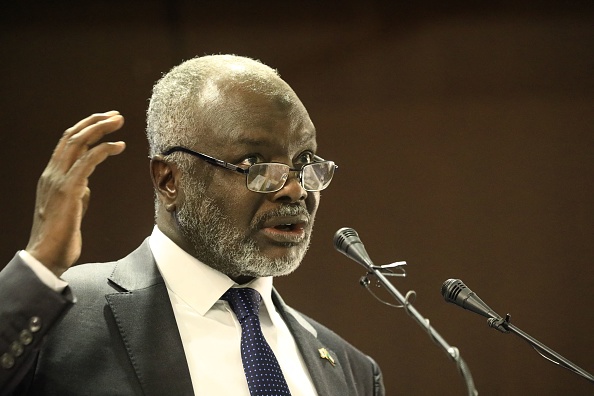State Revenues Decline and Increase Scenarios

Report – Rehab Abdullah
Neither the economic experts nor the citizen himself was discouraged by the statement of the Minister of Finance and Economic Planning, Dr. Jibriel Ibrahim, about the decline in state revenues by 80%. This is because Sudan is facing a militia war that begins the completion of the year next April, and this is because of their systematic destruction of all elements of production and the cessation of revenue institutions. Moreover, all stocks were burned and large quantities of gold were looted, which represented the primary source of treasury revenues.
*Reasons for low revenues*
It is evident that this is not the first time during the year that Gabriel has revealed a decline in state revenues, as he announced in October 2023 that they had declined to less than a third due to the war. He attributed the decline to the difficulty of collecting taxes and electronic collection, the disruption of the work of a large number of factories, and the impact of Livestock movement. Now, Jibriel explained that the most prominent reasons for the decline are the cessation of production, most of which is concentrated in Khartoum, in addition to the increase in military spending.
According to the 2023 budget, expected revenues were 7.363 trillion pounds and total spending was 8.196 trillion pounds. However, these revenues were not achieved while spending increased.
*A prescription to increase revenue*
Economists confirmed the possibility of increasing state revenues, and there is nothing preventing them.
The Dean of the Faculty of Economics at the University of Sudan, Dr. Abdul-Azim Al-Mahl, presented a proposal to increase state revenues, and stressed the importance of granting large facilities and exemptions from customs and taxes to factories in safe areas, which would generate some money for the state treasury, employ a number of unemployed people, and replace imports, in addition to encouraging and facilitating border trade in particular with Egypt, South Sudan, Eritrea and Ethiopia, as part of an effort to increase state revenues, which the Minister of Finance announced had declined due to the war.
During his speech to Al-Ahdath, Al-Mahl called for entering into a strategic partnership with Turkey or any other country to exploit Sudan’s resources and ports. He proposed implementing a deal similar to the Ras Al-Hikma deal in Egypt, proposing the Al-Fashqa area to implement the deal, and called for attracting support from international and regional organizations to support the health, education and environment, agriculture, industry, trade sectors, and others
And an attempt to exploit the minerals of the Red Sea between Sudan and Saudi Arabia via BOT system.
He added that the state can increase revenues in several ways without affecting the basics of life, by reducing customs on imports, especially luxuries such as vehicles, electrical appliances, solar energy, etc., which motivates importers to resume imports and pay their duties, as well as announcing the incentive price for wheat to motivate farmers to deliver their production to mills, which he considered would reduce imports and ease pressure on the dollar, stressing the importance of facilitating and encouraging exports through fiscal and monetary policy, and giving expatriates real incentives to attract their savings into the country, as well as allocating farms with an area of 30-50 acres in Safe areas and transfer their ownership to expatriates, citizens and foreign investors with an area of no less than three million acres and implementing the proposal of the Union of Arab Exporters and Importers in this aspect.
He called for implementing a group of infrastructure projects via the BOT system in safe areas.
Al-Mahl subjected the increase of revenues to controlling and rationalizing government spending and directing it to the citizen, while inventing some other creative methods and inspiring this from the experiences of other countries. He stressed the possibility of holding a workshop of specialists inside and outside Sudan to increase revenues without harming the citizen.
*Warnings of increased value added*
At a time when the economic expert, Dr. Mohammad Al-Nayer, warned against thinking about increasing prices or the value-added tax to increase the state’s revenues. He pointed out in his speech to (Al-Ahdath) the importance of increasing the state’s revenues in light of the current circumstances by thinking about creating new revenue streams without harming the lives of citizens, by activating mining sector. Al-Nayer said that the decrease in state revenues is not only due to the war, acknowledging the impact of the war between the Sudanese army and the Rapid Support Militia in a significant decrease in state resources, including that the 2024 budget estimates were not realistic, indicating that this applied to the 2022 and 2023 budgets.



